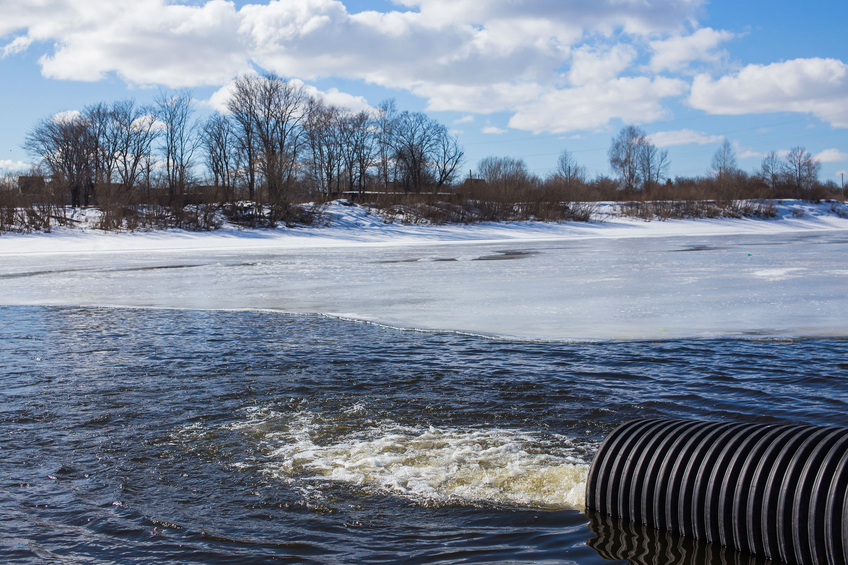British Columbia Civil 19 PDH Discount Package
Developing Your Stormwater Pollution Prevention Plan (SWPPP) (C04-057)
A Guide to Excavated and Embankment Ponds (C08-022)
An Introduction to Survey Methods and Techniques (A03-009)
General Principals of Engineering Ethics for British Columbia Professional Engineers (BC1-001)

This online engineering PDH course describes the basic operations required to prepare a construction site before foundations can be poured and walls erected. Site surveys, including construction surveys and the use of appropriate surveying instruments, are discussed first. Then earthwork operations such as pioneering, grubbing, stripping, and drainage are introduced. Soils testing is discussed. Finally the permitting process, including utility interruption requests, excavation requests, and road closure requests is described.
Site work involves the preparation of the construction site before pouring foundations or erecting walls. It begins with site surveys using specialized surveying equipment and methods. This is followed by obtaining building permits for various aspects of the project, working closely with local authorities. Once that work is underway, site and building layout begins. Leveling and grading are key components in building sound structures, taking into account the types of existing soils to determine whether soil stabilization is required before construction begins.
This 3 PDH online course is intended for civil and environmental engineers, land planners, and others whose seek a basic, introductory knowledge of the principles of site development.
This P.Eng. continuing education course is intended to provide you with the following specific knowledge and skills:
- Understanding the types of and needs for permits
- Learning how to classify soils based on soils tests
- Learning how to apply the principles of differential leveling
- Knowing how to lay out building lines to determine the boundaries of the excavations
In this professional engineering CEU course, you need to review Chapter 5, “Site Work” of the U.S. Navy Engineering Nonresident Training Course, Builder Basic, NAVEDTRA 14043A, published October, 2010.
Once you complete your course review, you need to take a multiple-choice quiz consisting of twenty (20) questions to earn 3 PDH credits. The quiz will be based on the entire NAVEDTRA Publication.
Upon successful completion of the quiz, print your Certificate of Completion instantly. (Note: if you are paying by check or money order, you will be able to print it after we receive your payment.) For your convenience, we will also email it to you. Please note that you can log in to your account at any time to access and print your Certificate of Completion.

This online engineering PDH offers steps for planning how to prevent and contain stormwater pollution. It offers a step by step guide on what should be included in the plan, as well as helpful tips for how the plan can be maintained, adhered to, and exceeded in order to ensure a high level of quality.
Stormwater runoff is water from rain or snowmelt that does not immediately infiltrate into the ground and flows over or through natural or man-made storage or conveyance systems. When undeveloped areas are converted to land uses with impervious surfaces such as buildings, parking lots, and roads, the natural hydrology of the land is altered and can result in increased surface runoff rates, volumes, and pollutant loads.
This course provides useful tips about maintaining a SWPPP, as well as examples of and foresight into what can go wrong with various different kinds of materials which are commonly found at industrial sites. This includes solids, liquids, and waste. It also provides useful information on how to effectively and efficiently handle stormwater discharge in the event that control measures fail, and information on monitoring pollutants in stormwater discharge.
This 4 PDH online course is applicable to industrial, civil, environmental, and sustainability engineers as well as others interested in gaining a basic understanding about developing a stormwater pollution prevention plan.
This P.Eng. continuing education course is intended to provide you with the following specific knowledge and skills:
- Understanding what causes stormwater pollution and its effects on the environment
- Learning how to prevent and contain stormwater pollution
- Learning how to develop a stormwater pollution prevention plan in order to be in compliance with a National Pollutant Discharge Elimination System permit
- Learning how to analyze the particular pollutants in your stormwater discharge
Upon successful completion of the quiz, print your Certificate of Completion instantly. (Note: if you are paying by check or money order, you will be able to print it after we receive your payment.) For your convenience, we will also email it to you. Please note that you can log in to your account at any time to access and print your Certificate of Completion.

This engineering online PDH course introduces the two main types of ponds, embankment and excavated. Planning, design, construction, maintenance and safety considerations for the various planned uses of ponds are also introduced.
For centuries landowners have been building ponds for livestock water, aquaculture, irrigation and recreation. More than 2 million ponds have been built in the United States on privately owned land. More will be needed in the future.
The demand for water has increased in recent years, and ponds are one of the most reliable and economical sources of water. Ponds serve a variety of purposes, including water for livestock, irrigation, fish production, field and orchard spraying, fire protection, energy conservation, wildlife habitat, recreation, erosion control, and landscape improvement.
This 8 PDH online course is intended for civil, geotechnical, mechanical, agricultural and structural engineers, as well as other personnel, who are interested in learning more about excavated and embankment ponds.
This P.Eng. continuing education course is intended to provide you with the following specific knowledge and skills:
- Understanding the difference between embankment and excavated ponds
- Understanding how ponds are used for landscaping, recreation, irrigation, fish production, field & orchard spraying, fire protection, landscape features, waterfowl and other wildlife
- Knowing how to conduct preliminary investigations for pond planning
- Learning how to estimate storm runoff and design minimum depth of the pond
- Familiarizing with pond safety considerations before construction
- Learning how to operate and maintain ponds and ponds safety
Upon successful completion of the quiz, print your Certificate of Completion instantly. (Note: if you are paying by check or money order, you will be able to print it after we receive your payment.) For your convenience, we will also email it to you. Please note that you can log in to your account at any time to access and print your Certificate of Completion.

This online engineering course provides an overview of past and present instruments and methods used to perform topographic surveys of sites, facilities or infrastructure. Prior to the advent of total stations, GPS, LIDAR, and data collector systems, transit and plane table topographic surveying methods and instruments were once a standard.
Transit and plane table topographic surveying methods and instruments are rarely used today, other than perhaps for small surveys when a total station or RTK system is not available. However, the basic field considerations regarding detail and accuracy have not changed, and field observing methods with total stations or RTK are not significantly different from the older survey techniques briefly described in this course.
This 3 PDH online course is intended for civil engineers and professional land surveyors interested in learning about methods and techniques for land surveys.
This P.Eng. continuing education course is intended to provide you with the following specific knowledge and skills:
- Learning about transit tape topographic surveys
- Understanding how to approach transit-stadia topographic surveys
- Knowing when to employ transit/theodolite and electronic distance measurement (EDM) instruments
- Understanding the history of plane table surveying and how it is used today
- Learning about the development of total stations and how they are used
- Understanding how real-time kinematic GPS systems are used today
Upon successful completion of the quiz, print your Certificate of Completion instantly. (Note: if you are paying by check or money order, you will be able to print it after we receive your payment.) For your convenience, we will also email it to you. Please note that you can log in to your account at any time to access and print your Certificate of Completion.

This online engineering PDH ethics course is (1) the study of moral issues and decisions confronting individuals and organizations involved in engineering and (2) the study of related questions about moral conduct, character, ideals and relationships of peoples and organizations involved in technological development (Martin and Schinzinger, Ethics in Engineering).
This course will address the principles of engineering ethics that every engineer is expected to live by when practicing their profession. It will also present unique ethical case studies randomly selected to demonstrate ethical challenges for professional engineers and alternatives to address these challenges.
This 1 PDH online course is applicable to Professional Engineers licensed in the Province of British Columbia and who are required to demonstrate continuing professional competency in engineering ethics as a condition of their license renewal. For each renewal period, every licensee must complete at least one (1) professional development hour relative to the principals of professional responsibility, conduct and ethics.
This P.Eng. continuing education course is intended to provide you with the following specific knowledge and skills:
- Understanding the definition of engineering ethics
- Learning how to hold the utmost safety, health, and welfare of the public when practicing your profession
- Familiarizing with the conditions to issue public statements
- Gaining a general overview on how to represent each employer or client as a faithful trustee
- Learning how to build your professional reputation on the merit of your services
- Understanding professional ethical practices through presenting realistic case studies
- Learning how to handle proprietary information and intellectual property rights
Upon successful completion of the quiz, print your Certificate of Completion instantly. (Note: if you are paying by check or money order, you will be able to print it after we receive your payment.) For your convenience, we will also email it to you. Please note that you can log in to your account at any time to access and print your Certificate of Completion.